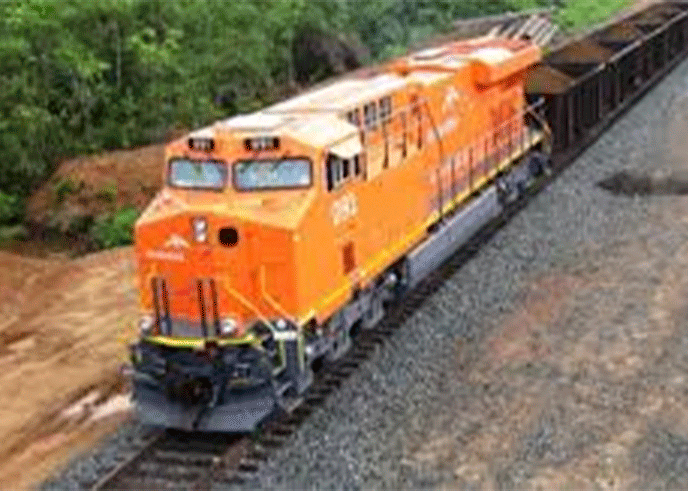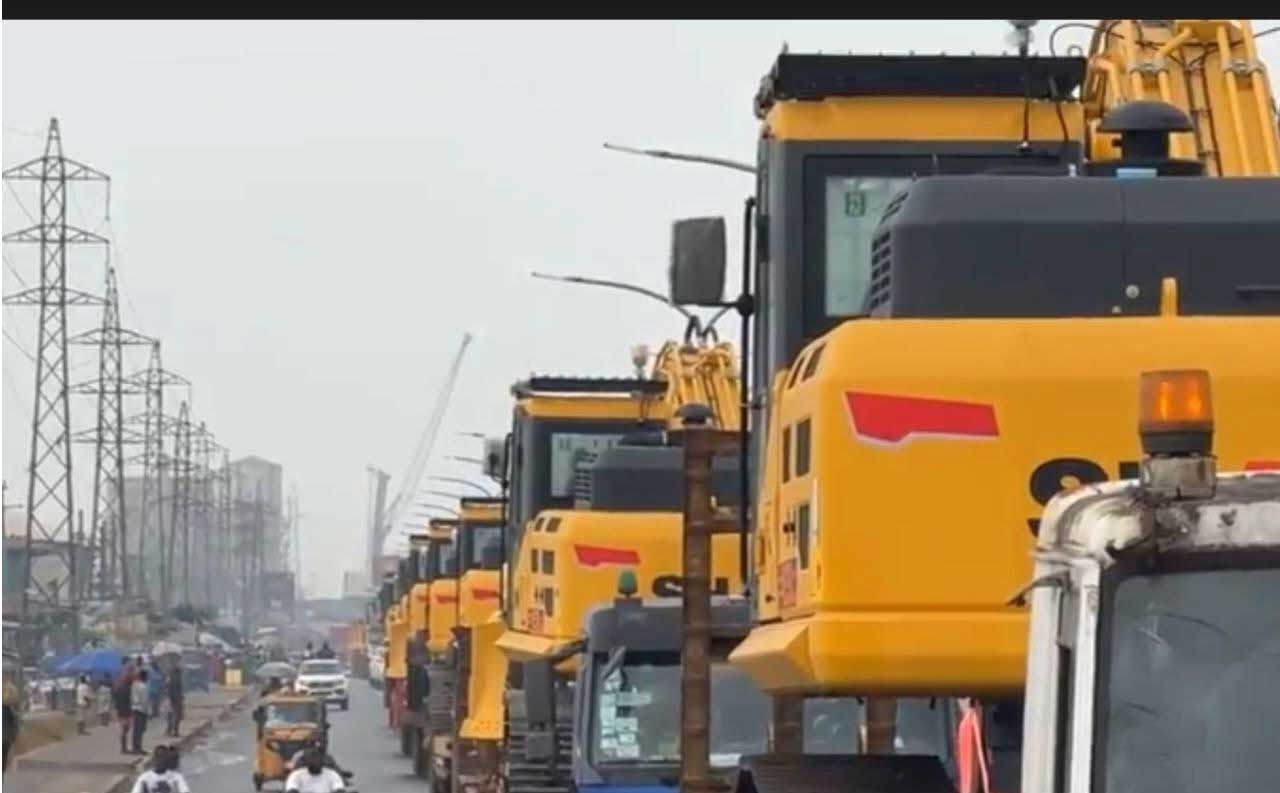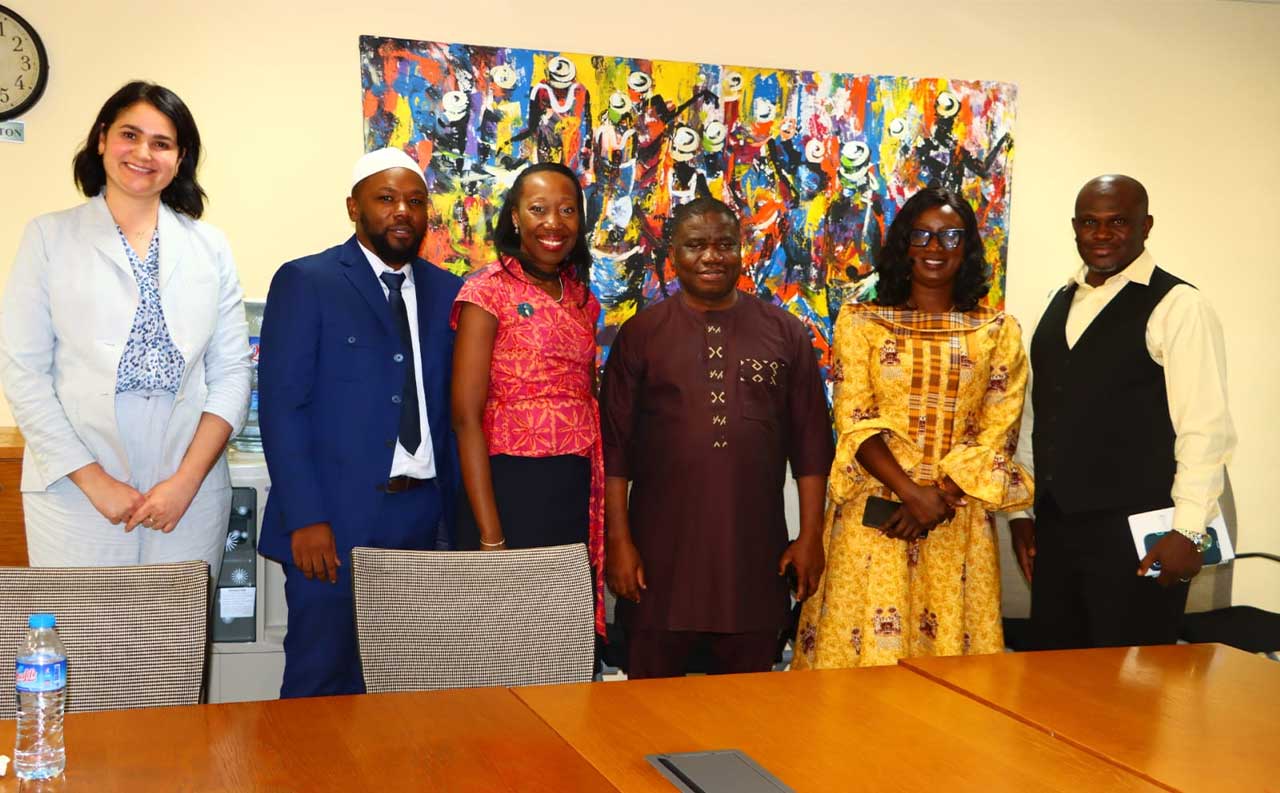In the wake of the ongoing protest at ArcelorMittal’s operation site in Nimba County, Liberia finds itself at a crossroad as President Joseph Nyuma Boakai seeks to woo much-needed investment to bolster the nation’s economy.
The disruption of the company’s operations came at the time President Boakai was attending the just ended US-Africa Business Summit in the United States of America.
The presence of the Liberian leader at the international gathering signifies a concerted effort to court international investors and instill investment confidence in Liberia’s economic potential.
However, as Boakai endeavors to showcase Liberia as a prime destination for investment, dark clouds have gathered on the domestic front. Allegations have surfaced implicating key figures and their accomplices in a campaign to sabotage Boakai’s efforts.
Reports suggest that they are actively sponsoring protesters aimed at disrupting the operations of ArcelorMittal Liberia, the country’s largest postwar investor and leading taxpayer.
It can be recalled that the ongoing dispute began when the government of Liberia, then led by former President George Weah awarded an exploration license to Solway Mining Company, allowing the company to operate within a portion of the concession area already under the control of ArcelorMittal Liberia.
The move by the Liberian Government to grant Solway Mining Company access to the concession area stirred controversy from the outset. ArcelorMittal Liberia, a subsidiary of the global steel giant ArcelorMittal, has been operating in the region for years and considered the area in question as integral to its operations.
The granting of the exploration license to Solway was seen as encroaching on AML’s territory and raised concerns over potential conflicts of interest and legal ramifications.
The Nimba County concession area rich in iron ore is a key resource for both companies. ArcelorMittal Liberia had invested significant resources into the region, including infrastructure development and community initiatives to support its mining operations.
As Solway Mining Company began its exploration activities within the concession area, friction between the two entities escalated. AML raised objections to Solway’s presence, citing its existing rights and the potential negative impact on its operations.
The situation reached a boiling point when AML in response to the government’s actions, issued a stern warning threatening to seek recourse through international arbitration against what it deemed as a breach of its concession rights.
The dispute over the Nimba County concession area has wider implications for Liberia’s mining sector and its relationship with foreign investors. The government’s decision to grant a license to Solway Mining Company raised concerns about transparency and regulatory oversight in the licensing process.
But in the waning days of the administration of former President Weah, Bioma Morgan’s Solway Mining Company, a player in Liberia’s mining sector, initiated discussions with ArcelorMittal.
Solway sought to settle a contentious issue surrounding the concession area, advocating for ArcelorMittal to compensate them with US$25 million for their investments made since acquiring the concession license to operate in Nimba. When the government of Liberia got the news, it stepped in and warned AML not to give a dime to Solway as it was the same government that granted the license to Solway and the very government has the power to revoke the license and turn it over to ArcelorMittal.
In the negotiations, the government requested US$50 million from AML.
After months of negotiations and contentious debates, ArcelorMittal finally acceded to the demands, agreeing to pay a total of US$50 million. The agreement stipulated that US$17 million would go directly to Solway Mining Company, while the remaining US$33 million would be paid to the government of Liberia to facilitate the handover of the concession area to ArcelorMittal.
Initially, ArcelorMittal provided the first US$25 million with the expectation that the Liberian government would allocate US$10 million to Solway Mining Company and the balance was contingent upon the ratification of an extended Mineral Development Agreement (MDA) by the legislature, granting ArcelorMittal an extension for its operations in Liberia.
However, tensions escalated when the Liberian Government defaulted on its commitment to give the 10 million from the initial amount to Solway. Despite public pressure, the government disbursed only US$500,000 to Solway Mining Company, significantly less than the agreed-upon amount, and further went on to controversially transfer the exploration license issued to Solway back to ArcelorMittal.
Amid this turmoil, the government of President Joseph Nyuma Boakai after meeting with executives of AML, and unaware of the action of his predecessor, signaled its intention to send ArcelorMittal’s new MDA to the Legislature for ratification. This development prompted Solway Bioma Morgan and his associates to take action by reportedly sponsoring protest in AML’s concession area to forestall the MDA from ratification.
Under the pretext of holding ArcelorMittal accountable for alleged breaches of the MDA, Morgan, and his accomplices allegedly orchestrated protests for days in Nimba County, particularly at the ArcelorMittal concession site.
The deliberate obstruction of a major investor’s activities undermines Liberia’s credibility as a haven for investment, casting doubt on the country’s economic prospects and future growth potential. As President Boakai strives to showcase Liberia’s potential on the global stage, such sponsored protest threatens to derail these efforts. Liberia, still in the nascent stages of post-conflict reconstruction, relies heavily on foreign investment to drive economic growth and development.
The targeting of ArcelorMittal sends a chilling message to investors, both domestic and international, about the perceived risks of doing business in Liberia. It undermines confidence in the country’s regulatory framework and raises doubts about its ability to safeguard investments.
The significance of ArcelorMittal’s presence in Nimba County cannot be overstated. As one of the largest foreign investors in Liberia, the mining giant plays a pivotal role in driving economic growth, creating employment opportunities, and fostering infrastructural development. Its operations not only contribute substantially to the national GDP but also provide vital revenue streams for local communities and the government.
In a comprehensive assessment released by the US Department of State recently, Liberia’s investment climate comes under scrutiny, revealing alarming practices that deter potential investors and hinder economic growth. The report sheds light on various systemic challenges that undermine the country’s attractiveness to foreign investment.
One significant finding highlighted in the report is the government’s discouraging stance towards investors. Despite rhetoric promoting investment, in practice, government actions often serve as barriers rather than facilitators for investment. Business leaders have reported encountering difficulties in engaging with government representatives, with meetings often contingent upon offering bribes.
Furthermore, the report points to a weak legal and regulatory framework, coupled with a lack of transparency in contract awards, as major obstacles to foreign direct investment. Widespread corruption permeates various sectors, hindering the establishment of a conducive environment for investment. Perhaps most concerning is the revelation that government officials view foreign investors primarily as opportunities for short-term graft, rather than as partners in fostering long-term economic growth. This mindset not only undermines investor confidence but also perpetuates a cycle of corruption that undermines the country’s development prospects.
Additionally, the report highlights the stark disparity in treatment between businesses operating within the bounds of the law and those operating illicitly. While some businesses find it easy to operate illegally by aligning with political interests, law-abiding enterprises face bureaucratic hurdles.



